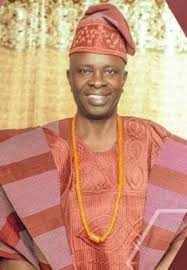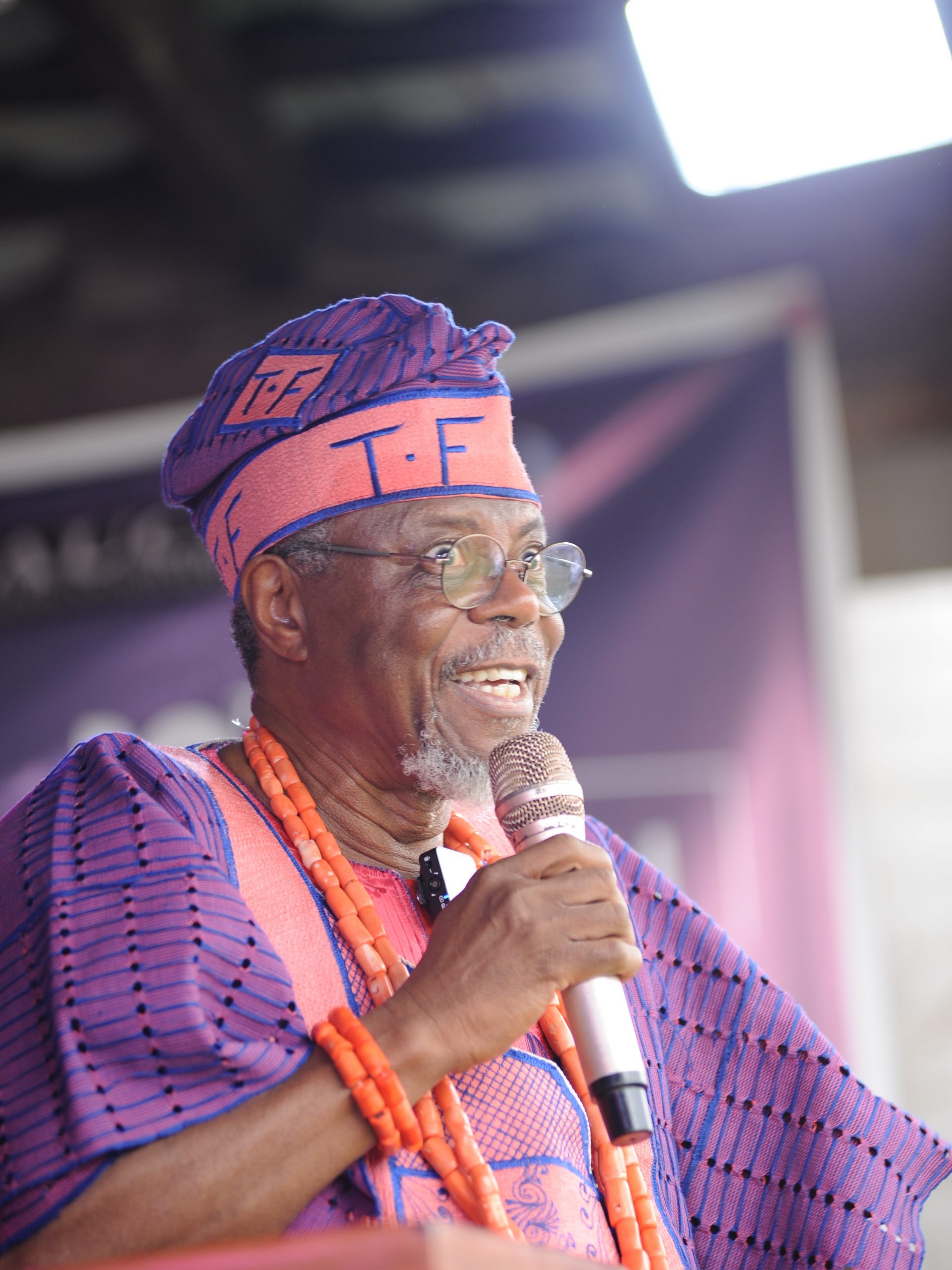By Toyin Falola
The spread of knowledge in human history owes its existential success to the efforts of daring individuals who are categorized as walking libraries. These individuals are themselves a pastiche of different intellectual resources acquired during their interactions with people around them and the educational institutions available in their environment. Dr. Michael Oladejo Afolayan comes readily as an instance of this description in that his journey into academic stardom is littered with the experiences captured in the above introduction. Among other things, he was raised under the tutelage of prodigious individuals with solid native intelligence whose method of knowledge transmission differs completely from what is obtained elsewhere. Their stock-in-trade of knowledge transfer is to expose an individual to practical exercises and experiences so that they can activate their heuristic potentials and discover things for themselves. To that extent, they can assimilate knowledge beyond the confines of their immediate borders. Education sticks to their head because they have been groomed to understand that knowledge is acquired through observation and, more importantly, with immersion in the values of their world and the world around them. Therefore, when you come across Yorùbá people, and by extension Africans generally, with a sound knowledge of operations of social structures, that comes from their direct observations of their immediate family, especially in a way that their affairs are organized when they were growing up. The case of Michael Oladejo Afolayan is evidence of this transformation, and that explains why he remains an important icon for using his intelligence to transform the world.

Afolayan’s journey in his native environment helps to expose him to the fecundity of Yoruba traditions, especially in terms of how they organize their social activities. Among other things, this knowledge is revealed from his inciteful publication, Fate of Our Mothers: The Collected Memories of An African Village Boy. In this memoir, I am fascinated by the knowledge of gender politics, as has been the practice among the Yorùbá people, which has been transferred to him by his people. He makes very profound clarification in the book to correct the wrong notions that one can universalize people’s experiences and impose on them modalities for which they would organize their cultural events and realities. This is illustrated in how he explains the conditions of the Yoruba women in their pre-capitalist history. African mothers have been an integral voice in shaping the world of their people through their participation and contributions in the affairs that concern the collective community. Rather than being sidelined by their male counterparts or being excessively dominated by them, Afolayan shows how they have made very impressive leaps to regulate the activities of their surroundings. For illustration, as he points out, an average Yorùbá woman in the environment where Afolayan was raised as a child is a custodian of social and economic institutions. Through their active participation in the economic affairs of their society, they wield the authority to shape how their world would be carved. They are, therefore, not passive stakeholders in the development of Yorùbá society. As custodians of the economic spectrum of their institutions, women could determine their domestic politics and socialization process as they have sufficient power to oversee their aspirations.
This native intelligence plants in the minds of everyone who has been raised in that society the understanding that mothers are not disposable materials that can be reduced to an article of satisfaction for their male counterparts. Instead, they are stakeholders and have the power to shape what occurs in their environment. Afolayan’s familiarity with such an area enables him to begin to understand the reason for the socialization process in society. With mothers in charge of economic power and also simultaneously controlling the domestic affairs of their society, they have the soft power to raise children in particular ways. The mothers relate with their children amidst the responsibility to improve themselves so that they can remain in an exalted position. This knowledge, therefore, helps to reproduce the thoughts of fairness and transparency in running the social and political affairs of the people. Afolayan admits that the remembrance of such an experience brings nostalgia, but it nevertheless helps him to understand that the place of women in Africa is central to social development. They were not to be considered articles of enjoyment for their counterparts on the assumption that they were weak, as perceived in some other civilizations. As a young boy developing in an African village, it becomes apparent that he belonged to everyone in the community. Among the Yorùbá, the upbringing of children is collective, which gives people of parental age the freedom to intervene in issues affecting children other than their own. This way, they could collectively build a social group that is resilient and adaptive. But there is more.
Afolayan published a book in 2023, which he titled Fifty Children That Played Together for Fifty Years: Thinking about My Classmates. You don’t need Orunmila’s intelligence to understand the motivations behind his intellectual adventure in this book. The inspiration for the book is drawn from the popular Yorùbá axiom that “twenty children cannot be together for twenty years”. It remains apparent that the saying comes from the understanding that humans are meant to tow different paths in their process of self-realization or discovery. Life has been programmed to come with numerous experiences that people cannot escape their evolutionary mandate, which often necessitates that they take different directions in their course of development. Between the ages of 0 and 20, youths are bound to encounter difficult moments that compel them to make decisions about their life direction. As a result of that, they would be faced with the temptation to take lines and roads that are sometimes unpopular. But this does not undercut the fact that people who make conscious efforts towards strengthening bonds are only investing in good relationships. The sarcasm in his title is easily noticed in how he and his group of friends have been able to keep going for half a century. This speaks to the deliberate investment of time and other resources in their engagements so that they would not be distracted by the issues of life. I particularly derive from this book the knowledge that when humans consciously commit themselves to indulgences, they have the intention to improve the lives of others.
Apart from being an established academic, Afolayan’s contributions to humanity cannot be overemphasized. His profile, in this respect, deserves accolades. This prodigious academic has single-handedly organized different workshops for people to benefit from. In the United States of America, he conducted many of these community services that have become central to the improvement of educational engagements in various places. In addition to this, Afolayan has spearheaded community development programs that are geared towards the rehabilitation of people of different backgrounds. This is informed by his ceaseless commitment to anything that would bring progress to human life. He understands that people have unique experiences, and before they can become useful to themselves, there is a need to transform them into something better. To achieve this, they must invest in anything crucial to their growth. In every dimension of his involvement, one thing stands out: the provision of quality resources, mostly intellectual and financial, to the point that they would have an immeasurable impact on a target audience. He has been very valuable in the diaspora and remains constant in his recognition of his homeland. That way, people are continually tapping into his ideas because he represents a dynamic figure whose engagement and activities are worthy of emulation.
What more can reveal how important he has been to the global academic network than the recognition he has had in the profession of teaching? This great man has won numerous scholarship awards from well-established foundations to continue to carry out research engagements that would shed more light on the world. He is the winner of the 2021 J. A. Atanda Best Essay on the Yoruba, which means that he has always been someone with quality intellect who does not compromise on quality for whatever reason. More than one would imagine, he has become very important to the lives of many for whom he has given the opportunity to rise. He is a contributor to the course of humanitarian good. He has made candid donations where necessary to forward his investment in the betterment of society. Oladejo Afolayan has a good working relationship with people because he believes that everyone has latent values that they can share if we can provide them the atmosphere to do so.
Happy 70th birthday.


